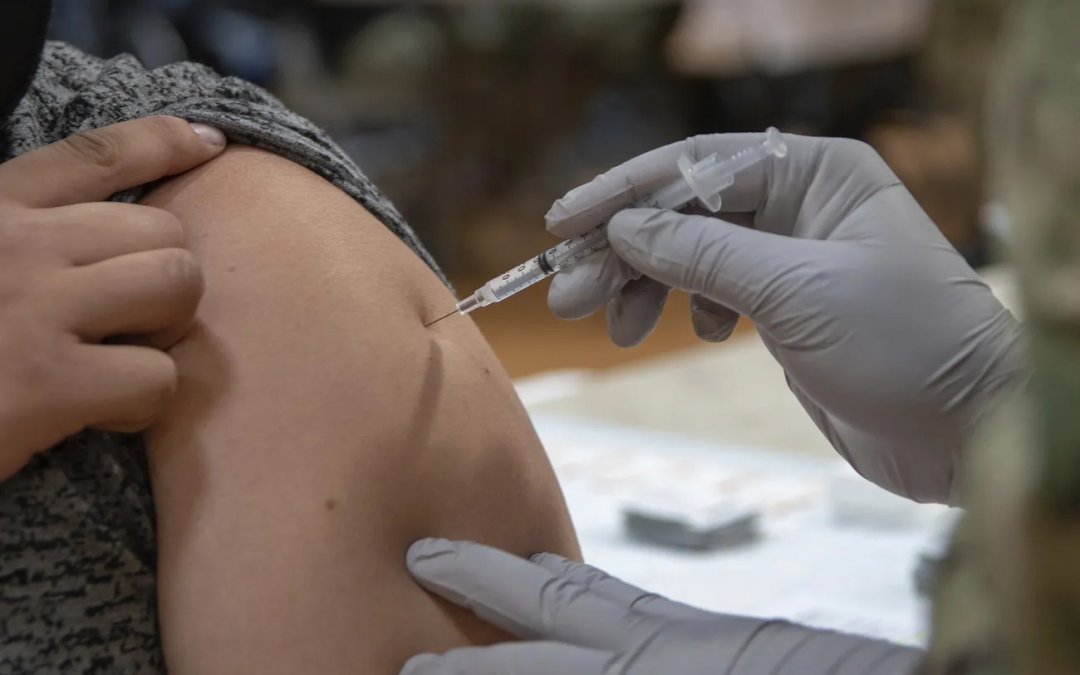WASHINGTON – Sen. Bernie Sanders (I-Vt.) pressed Moderna CEO Stéphane Bancel on the company’s plan to increase the price of their COVID-19 vaccine to $130 per dose as sales shift to the commercial market in May when the Biden administration ends the national emergency.
Up until now, the U.S. government purchased the Moderna vaccine for between $15 and $26 per dose and made them available to the public at no cost.
Moderna’s proposed price hike has raised concerns among lawmakers who fear that it could lead to unequal access to the vaccine, especially among low-income families.
During his testimony before the Senate Committee on Health, Education, Labor, and Pensions on Wednesday, Moderna CEO Stéphane Bancel defended the company’s plan to raise the price, saying, “this is not the same product.” Bancel outlined the difficulties the pharmaceutical company would likely encounter after the U.S. government stopped purchasing and delivering the vaccines.
In order to ensure adequate protection for individuals, Bancel said they would need to produce more vaccine doses than anticipated. The higher costs of production would need to be covered.
Sanders vehemently opposed Moderna’s proposal, suggesting the vaccine be made available to all at no cost in order to reach the maximum number of people. He argued that Moderna should prioritize public health over maximizing profits.
Sanders mentioned Moderna as an example of the “unprecedented corporate greed” he claims has pervaded the pharmaceutical industry. In his opening remarks, he noted that “a recent survey found that 37% of Americans could not afford the prescription drugs their doctors recommended,” while 10 big pharmaceutical corporations made over “$100 billion in profit in 2021, an increase of 103% over the previous year.”
Senator Bill Cassidy (R-La.), the ranking member of the committee, criticized the hearing, complaining it resembled more of “a public shaming show-trial than a fact-finding mission.” He further expressed his concern that the title of the hearing presumed guilt and accused the committee of having the wrong goal, suggesting that they should first focus on fact-finding before attempting to hold anyone responsible.
Regarding the profiteering of pharmaceutical companies during the pandemic, he disagreed that there was a direct link. Cassidy said the vaccine was made available as soon as it was developed and implemented, saving many lives.
Sanders pointed out $12 billion in federal government funding had been spent on research, development, and procurement of the vaccine. He asked Bancel whether Moderna would be willing to charge less than $130, given that the United States already pays the highest prices in the world for prescription drugs in general. Bancel admitted that he could not guarantee that the prices would be lower than those of other countries.
Several lawmakers urged for more information on how patients might take advantage of Mordena’s assistance program to help them get access to the Covid-19 vaccination. Moderna has pledged to make sure that the vaccines are accessible at no cost to those who are uninsured or have inadequate insurance, but the company has provided very little information about how it would actually operate the program.
Sanders expressed his criticism of Moderna’s vaccine assistance program, calling it “poorly designed and extremely difficult.” He demanded more transparency and data about how the program will benefit the public, particularly considering that patients will still end up paying higher insurance premiums.


